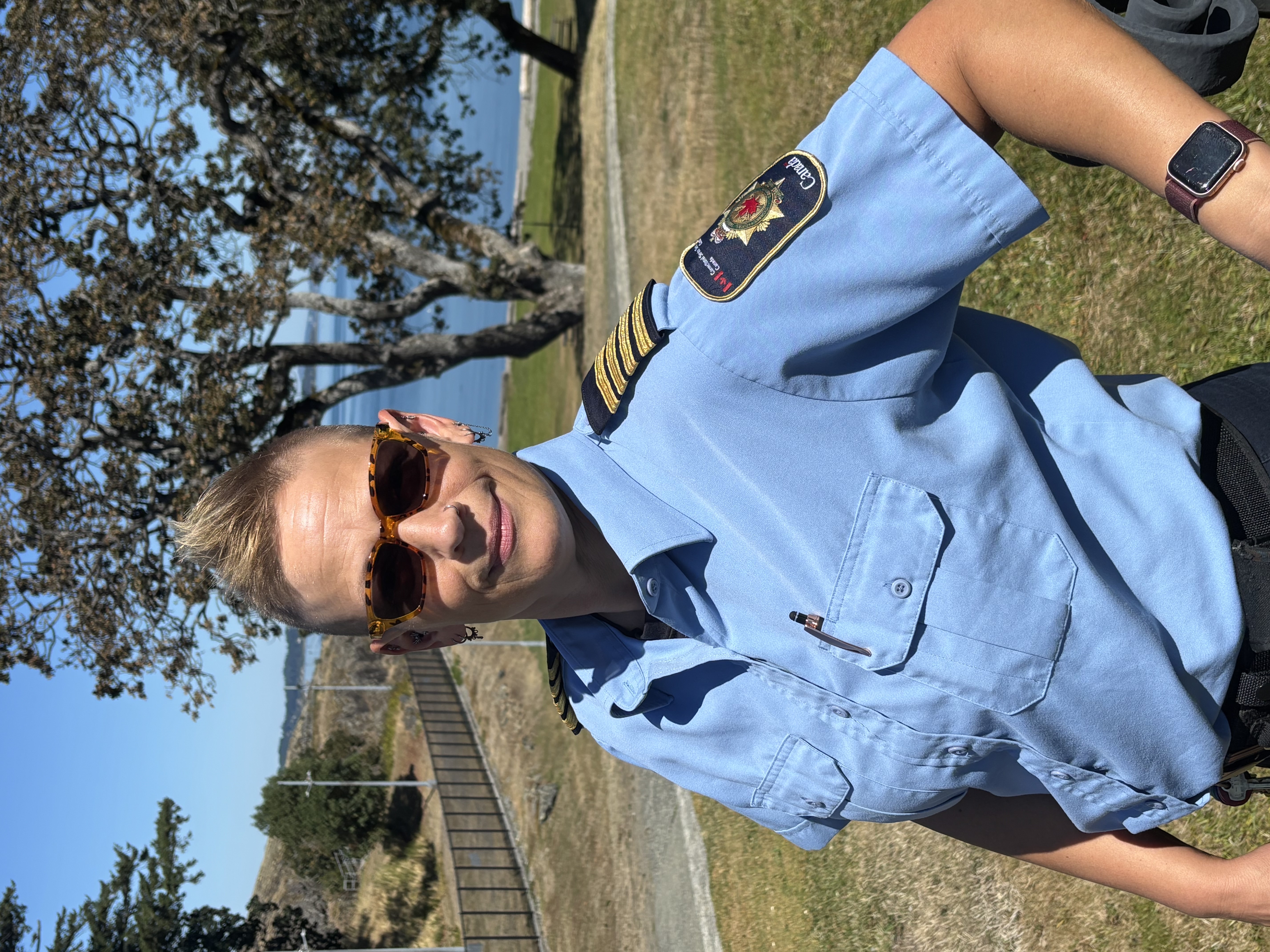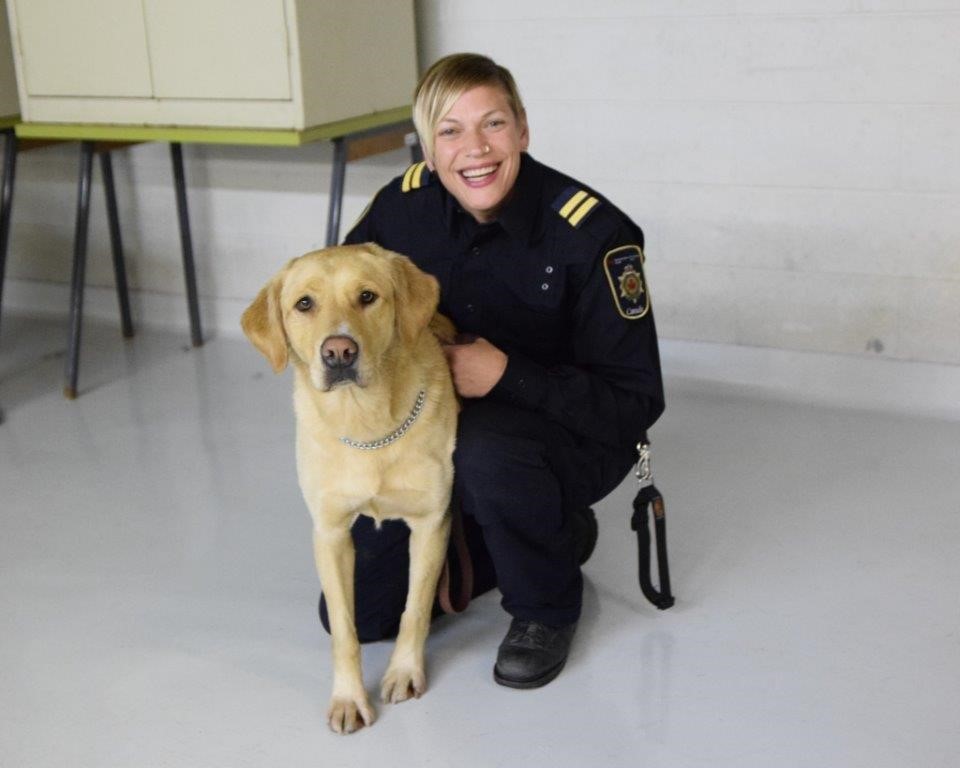Behind the badge: Dana Hackl
Dana Hackl never thought she would work in corrections. Although she had friends and family who worked in the field and spoke highly of it, she didn’t think it was for her.

Then, while working as a personal trainer, she met a client who worked for CSC, who thought she would be a great fit.
From there, the wheels started spinning. She reached out to her uncle, who worked for the provincial system in British Columbia.
“He kind of convinced me to go through the process,” Dana recalls. “So, I thought, well, I'll just go through the process, and I'll apply and if it's meant to be, it's meant to be.”
When she began her training, she learned she would be assigned to a maximum-security institution. Even having had the opportunity to spend a few days shadowing an officer as part of the training, Dana says it was daunting to her as someone who never had any experience in the field.
Now, almost 20 years later, Dana has worked in 2 provinces, every security level and in multiple roles, all with the service. Her early years in maximum-security helped her develop and hone skills, including self-defence and arrest-and-control techniques, that have been invaluable throughout her career.
“It was a huge eye opener, the fact that you're going to a maximum security,” she says. “So yeah, it's a very scary place to work, but I think it gave me a lot of that skill set.”
Back on her first day of training, Dana and the other recruits were asked what they wanted out of corrections. She remembers she had a simple response: “I want to be a dog handler.”
After 5 years, the opportunity arose to join the Detector Dog Program as a handler and Dana jumped at it. Dana quickly found she would need to relearn some of the basic principles and skills she’d been building over several years as a Correctional Officer, especially around conducting searches.
“When you're searching inmates, you're always taught that you never turn your back to an inmate,” she says. “But now I have to rely on the staff watching me search, watching the inmate’s behavior.”
This meant putting a lot of trust in her colleagues and building strong working relationships. In turn, this led to a better understanding of the importance of teamwork and coming together to make a difference.
It was as a Detector Dog Handler that she gathered experience working at a range of different types of institutions in BC, as well as a few months in Alberta at the Edmonton Institution for Women. Dana transferred to Alberta in November 2010 and worked at Bowden Institution. She became a dog handler in March of 2012 and worked for several months at Edmonton Institution, before transferring back to BC in October of 2012. While she never worked at a healing lodge, she got to visit them on occasion when she was called in to conduct searches. This gave her a greater appreciation of the full range of what CSC does.

Although she loved working with the detector dogs, after working at institutions across the province, Dana was ready for a new challenge. In 2022 she hung up her leash, retired from dog handling, adopted K9 Robyn and transferred to William Head Institution (WHI) in Metchosin on Vancouver Island. In December 2024, after 10 years as a Handler and going back to the line, she started an acting Correctional Manager position at WHI.
“It was time for yet another change,” Dana says. “I'm not afraid of change, since I tend to get a little bored.”
Now that she’s at a minimum-security institution, Dana says she’s able to see the difference that CSC can make in the lives of offenders. Having worked at higher security classifications, Dana says she’s able to see offenders using the life skills they were taught at those levels as they prepare to reintegrate into the community.
The process isn’t linear, though. Offenders will often face setbacks, such as their parole being denied or being transferred back to a higher-security institution, but Dana says the offenders she works with are committed to their rehabilitation and will continue to work to better themselves despite these setbacks.
“For some, it takes a couple chances,” she says. “We've had some that come in and then they do end up going to higher security and eventually they'll come back to us. They'll work their way down again and then it seems to be the second time they really, really try.”
Although she’s only been at William Head for 3 and a half years, Dana hopes to stay for a long time.
“I think with any large organization, you're going to have your ups and downs, right? So, it's basically how you're able to best manage it for yourself and try to find the positive in it.”